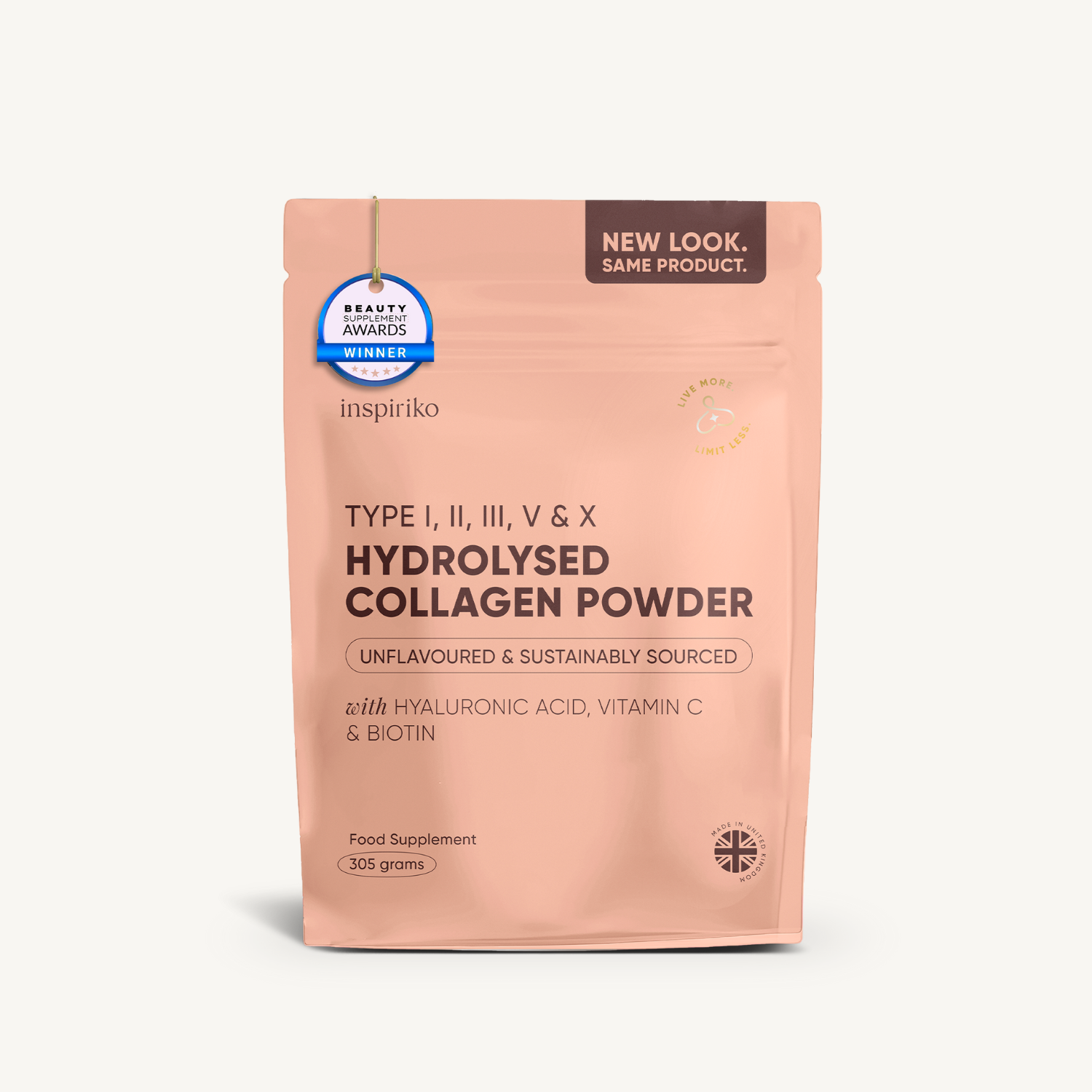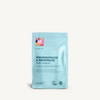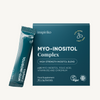Polycystic Ovary Syndrome (PCOS) is one of the most common hormonal disorders, affecting an estimated 10–20% of women of reproductive age. PCOS is a complicated condition involving irregular periods, ovarian cysts, and insulin resistance, often accompanied by weight gain, acne, abnormal hair growth, and fertility issues.
The challenge? PCOS isn’t just about one symptom, like losing weight or clearing acne. Effective PCOS management requires addressing the root causes: hormonal imbalance, insulin resistance, inflammation, and lifestyle factors. Unfortunately, many women fall into common traps when trying to treat PCOS. The good news is that these missteps are avoidable with the right, evidence-based strategies.
Here are the most common mistakes women make when managing PCOS and tips on how to avoid them.
Common Mistakes to Avoid and How to Manage PCOS Effectively
Mistake 1 – Crash Diets & Extreme Restrictions
When first diagnosed with PCOS, many women feel pressured to overhaul their eating habits overnight. Unfortunately, this often leads to crash diets and extreme food restrictions that do more harm than good.
-
Over-restricting food intake: Jumping into fad diets that eliminate entire food groups, such as cutting out all carbs or drastically slashing calories, can backfire. Instead of speeding up results, these approaches slow down your metabolism, destabilize blood sugar, and often lead to fatigue, cravings, and binge cycles.
-
Random diets without guidance: Going gluten-free, dairy-free, or trying other restrictive trends without professional advice may create nutritional gaps and unnecessary stress, without actually improving PCOS symptoms.

How to Avoid It:
Rather than relying on extremes, aim for balanced, sustainable nutrition:
-
Build meals around complex carbohydrates (quinoa, oats, sweet potatoes), lean proteins, and plenty of fiber from vegetables, legumes, and seeds.
-
A Mediterranean-style diet rich in whole foods, healthy fats such as olive oil, lean proteins, and fiber-packed produce has been shown in studies to improve insulin sensitivity, reduce inflammation, and support sustained hormonal wellness in women with PCOS. (1)
-
Get guidance from a registered dietitian experienced in supporting women with PCOS. They can personalize a nutrition plan to support both symptom management and overall wellness without extremes.
The goal is to nourish your body rather than deprive it. Sustainable eating patterns that stabilize blood sugar and support hormones are far more effective for PCOS management than short-term restrictive diets.
Find what works for you. Take our PCOS quiz to get personalized tips on diet, lifestyle, and supplements for better hormone balance.

Mistake 2 – Obsessing Over the Scale
For many women with PCOS, weight loss becomes the central focus of treatment. It’s easy to believe that dropping a few kilos will “cure” the condition, but PCOS is far more complex than a number on the scale.
-
Weight loss as the only goal: Aggressive diets, endless workouts, and constant weigh-ins can create unnecessary stress, encourage unhealthy behaviours, and even disrupt hormone balance further. While managing weight may help improve symptoms, it isn’t the magic cure many believe it to be.
Struggling with stubborn PCOS weight gain? Discover the hidden causes and effective strategies.
-
Supplements as quick fixes: Another common mistake is piling on multiple supplements in the hope that they’ll speed up weight loss. Without guidance, this scattergun approach can be ineffective or even harmful.
How to Avoid It:
Instead of focusing solely on weight, prioritize overall health and hormone balance. Stabilizing insulin levels can improve PCOS symptoms and often helps regulate weight naturally over time. Supporting gut health with fiber-rich foods and probiotics is also important, as gut imbalances can worsen inflammation and hormone issues.
PCOS and your gut are more connected than you think - discover the link now!
Quality sleep and effective stress management play a key role, directly influencing appetite, metabolism, and hormone balance. When it comes to supplements, choosing wisely matters more than taking many at once. PCOS diet supplements such as myo-inositol, folate, and chromium can support insulin balance and hormone health, but they are most effective when combined with a balanced diet and sustainable lifestyle changes.
Tip: When it comes to supplements for PCOS, quality matters more than quantity. Instead of juggling multiple pills, look for well-researched blends. For example, Inspiriko’s 5-in-1 PCOS Support combines myo-inositol powder, pyridoxal-5-phosphate (vitamin B6), calcium l-methylfolate, chromium picolinate, and vitamin B12 (methylcobalamin) in one simple formula, making it easier to support hormone balance and insulin health alongside a balanced diet.

By zooming out from the scale and focusing on whole-body wellness, women with PCOS are more likely to see sustainable improvements in energy, cycles, and overall health without the stress of constant weigh-ins.
Curious about what triggers PCOS? Get insights into the causes and key risk factors you should know.
Mistake 3 – Ignoring the Root Causes & Professional Guidance
One of the biggest barriers to effectively managing PCOS is overlooking the underlying causes and relying only on surface-level fixes. Many women either delay getting professional help or focus on treating individual symptoms without addressing the bigger picture.
-
Delaying diagnosis: Symptoms like irregular periods, persistent acne, or unexplained weight gain are often dismissed as “normal” hormonal fluctuations, especially in younger women. But ignoring these early signs can delay PCOS diagnosis.
According to research, early detection of PCOS is crucial for preventing long-term complications such as type 2 diabetes, cardiovascular disease, and infertility (2).
-
Treating only the symptoms: Tackling acne with creams, or irregular cycles with birth control pills, may provide short-term relief, but leaves the hormonal imbalance and insulin resistance driving PCOS unchecked.
-
Relying solely on medication or supplements: While metformin, birth control, or even evidence-based supplements can help, they’re not standalone solutions. Without lifestyle adjustments, results are often temporary.
How to Avoid It:
-
Seek early evaluation: Don’t ignore symptoms like irregular cycles, thinning hair, or stubborn weight gain. Getting checked early and scheduling regular follow-ups with a healthcare provider allows for a more proactive, preventive approach.
-
Target the root cause of insulin resistance: Nutrition is central to PCOS care. A diet rich in whole foods, lean protein, healthy fats, and fiber can help balance blood sugar. (3). Pair this with regular activity, something as simple as a 10-minute walk after meals has been shown to improve insulin sensitivity and reduce PCOS-related risks.
-
Adopt lifestyle strategies alongside medical care: Balanced nutrition, moderate exercise, stress management, and sleep hygiene are all powerful tools that work in tandem with medication or supplements to create sustainable improvements.
The takeaway? Don’t just mask the symptoms. By addressing the root causes and working closely with healthcare professionals, women with PCOS can prevent complications and take real control of their health.
Looking for safe, effective PCOS support? Here’s why natural supplements could be your best choice!
Mistake 4 – Neglecting Mental Health, Sleep & Stress
PCOS is often thought of as purely a physical condition, but the mental and emotional side of the disorder is just as important. Sadly, this aspect is frequently overlooked.
-
Mental health struggles: Women with PCOS are at higher risk of experiencing anxiety, depression, and low self-esteem. These challenges can make symptoms worse, creating a vicious cycle: stress and poor mental health fuel hormonal imbalance, which then worsens physical symptoms, further impacting mood and confidence. Ignoring this emotional toll means ignoring a core piece of PCOS management.
-
Poor sleep and chronic stress: Sleep and stress are tightly linked to hormone balance. According to research, sleep deprivation and chronic stress both elevate cortisol, the stress hormone, which in turn worsens insulin resistance and disrupts reproductive hormones (4). Over time, this can lead to irregular cycles, weight gain, and worsening PCOS symptoms.
How to Avoid It:
-
Prioritize mental health. If you’re struggling with anxiety, depression, or low mood, seek therapy or counselling. Mental health care isn’t optional; it’s a vital part of PCOS management. Support groups and journaling can also help women feel less alone in their journey.
-
Protect your sleep. Aim for 7–9 hours of quality sleep each night. Create a calming bedtime routine: dim the lights, unplug from screens at least an hour before bed, avoid late caffeine, and consider relaxation techniques like herbal tea or gentle stretches.
-
Manage stress daily. Incorporate stress-reduction strategies such as deep breathing, yoga, meditation, or even short mindful walks. These small practices help lower cortisol, improve insulin sensitivity, and bring hormones back into balance.
The truth is, mental health, sleep, and stress aren’t side issues; they’re central to PCOS care. When you nurture your mind and give your body proper rest, you make every other aspect of PCOS treatment more effective.

Mistake 5 – Changing Everything at Once (or Doing Nothing)
When it comes to managing PCOS, many women fall into an all-or-nothing trap. Either they overhaul their entire lifestyle in one go, new diet, new workout, new supplements, new sleep routine, or they feel overwhelmed and end up doing nothing at all. Both extremes can backfire.
-
All-or-nothing approach: Trying to change too many things at once usually leads to burnout, frustration, and inconsistency. Unrealistic goals make it hard to stay on track and may even worsen symptoms if stress levels spike.
-
Not exercising at all: On the flip side, avoiding physical activity altogether makes it much harder to improve insulin sensitivity, support hormonal balance, and manage weight. Even light to moderate activity has big benefits for PCOS.
-
Not asking for support: Many women keep their struggles private due to stigma or embarrassment, which can increase stress and make lifestyle changes harder to sustain.
How to Avoid It:
-
Start small and stay consistent. Pick one or two habits to focus on, like adding 30 minutes of moderate exercise most days or swapping processed snacks for whole foods. Sustainable changes beat drastic overhauls every time.
-
Build your support system. Open up to family, friends, or a partner about your challenges, or join online PCOS communities. Having encouragement makes the journey less isolating.
-
Celebrate progress. Even small wins better sleep, improved energy, and more regular cycles, are worth acknowledging. Check in with a healthcare provider or dietitian to adjust your plan as you go.
Remember: PCOS management is a marathon, not a sprint. Gentle, steady progress always leads to better long-term results than chasing perfection.
Conclusion
Managing PCOS is a long-term journey, not a quick fix. True progress comes from balanced nutrition, regular movement, stress and mental health support, quality sleep, and medical guidance. Instead of viewing PCOS management as restrictive or punishing, see it as an opportunity to build sustainable habits that improve both hormone balance and overall well-being.
Since PCOS and diet are so closely linked, even small nutritional improvements can have a big impact when combined with stress management, sleep, and exercise.
Every woman’s PCOS journey is unique, so work with qualified healthcare professionals to create a plan tailored to your needs. With the right approach, you can move beyond simply managing symptoms and start building a healthier, more resilient future.
References for the blog
-
Mei, S., Ding, J., Wang, K., Ni, Z. & Yu, J. (2022) 'Mediterranean Diet Combined With a Low‑Carbohydrate Dietary Pattern in the Treatment of Overweight Polycystic Ovary Syndrome Patients', Frontiers in Nutrition, 9, p. 876620.
Available at: https://pmc.ncbi.nlm.nih.gov/articles/PMC9014200/ -
Rai, A., Gupta, A., Yadav, S.K. and Kumari, R., 2025. Long-term implications of polycystic ovary syndrome (PCOS): An in-depth study on associated health risks and complications. Indian Journal of Obstetrics and Gynecology Research, 12(1), pp.74–78.
Available at: https://doi.org/10.18231/j.ijogr.2025.014 -
Mahalingaiah, S. (2023) 'Managing PCOS With Diet: What to Eat and What to Avoid', Mass General Brigham Newsroom.
Available at: https://www.massgeneralbrigham.org/en/about/newsroom/articles/nutrition-for-pcos -
Das, A.K.L., Gupta, M.L., Priya, J. & Kumari, R. (2023) 'Impact of sleep deprivation on hormonal regulation and metabolic physiology', International Journal of Academic Medicine and Pharmacy, 5(6), pp. 1464–1468.
Available at: https://academicmed.org/Uploads/Volume5Issue6/300.%20%5B2117.%20JAMP%20IARCON%5D%201464-1468.pdf






